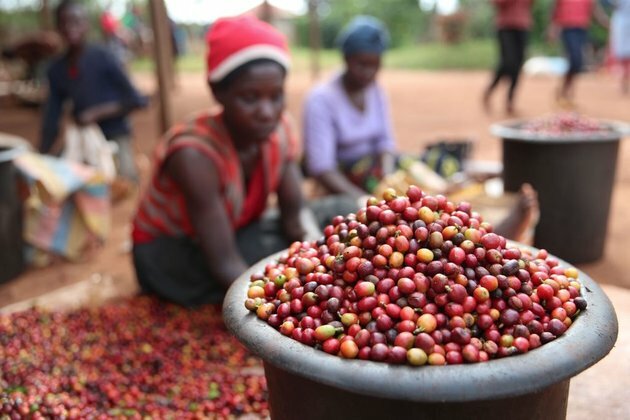What the budget holds for the agriculture sector in Kenya
The Conversation
15 Jun 2021, 00:11 GMT+10

Kenya's second budget under the shadow of the COVID-19 pandemic has prioritised a stimulus for economic recovery and the implementation of President Uhuru Kenyatta's legacy projects. In the president's last full financial year, the emphasis is clearly on finalising ongoing investments and creating a suitable environment for economic recovery to safeguard livelihoods.
The agriculture sector, which has received a slightly bigger share of the budget, remains vital to the country's economic recovery strategy. The sector contributes 34% to gross domestic product. It has also recorded a relatively stronger performance than other sectors of the economy that have been adversely affected by the pandemic.
However, challenges exist within the sector that call for increased investments by both the public and private sectors. In 2020, widespread flooding damaged cropland and increased post-harvest losses. Also, desert locust infestations in arid and semi-arid areas destroyed about 175,000 hectares of crop and pastureland. This affected the livelihoods of nearly 164,000 households.
Finally, the COVID-19 pandemic disrupted the food supply chains at the onset of the pandemic. This severely disrupted both formal and informal supply chains. However, the sector was able to provide livelihoods to more people who joined the sector from other sectors such as services and industry as the income opportunities in these sectors declined due to the effects of the pandemic.
Although the budget addresses these issues, there are likely to be challenges in implementing the promises. On the one hand, the government is battling to raise adequate revenue to support expenditure. It is also hard pressed to keep spending in check and borrowing within acceptable limits.
Furthermore, Kenya needs to address inefficiencies in spending to attain the goals outlined in the budget. These include enhancing effectiveness of public expenditure by allocating finances to programmes that have the greatest impact, making project funding available when required and reining in wasteful expenditure.
Allocations to agriculture
The budget has allocated 2.4% to agriculture to be administered by the central government, an increase on last year's 2.2% allocation. In addition, due to the devolved governance system in Kenya, further public investments in the sector will be made by county governments.
The budget allocated to county governments is 12% of the total budget. In the past, county governments have allocated an average of 6% of their budget to agriculture. Therefore, the combined investment by the government in the sector is expected to be about 3.2% of the total budget if county governments maintain the same pattern as in the past.
This means that the total funding to the sector is still way off Kenya's international commitment of 10%.
On the plus side, this year's agriculture budget has allocated funds more equitably across sub-sectors. Money will be provided for programmes that promote resilience against climate change and variability. There's also funding to enhance productivity and incomes for smallholder farmers through provision of subsidised inputs for example.
Read more: Big irrigation projects in Africa have failed to deliver. What's needed next
There has also been a shift from large scale irrigation to smallholder irrigation projects. Large scale irrigation projects have performed poorly amid allegations of corruption and embezzlement of funds. New funding to the Small-scale Irrigation and Value Addition Project is intended to address this.
Kenya's livestock sub-sector has been constrained by low productivity, high costs of production and poor access to markets. Farmers also face inadequate access to quality improvement assistance such as extension services, artificial insemination, and veterinary services. Further, the effects of climate change have affected pastoralists, who form a large majority of livestock farmers. In light of this, the allocations to a national stock insurance programme are in line with the risk mitigation and resilience measures.
There are also some tax measures. These include the waiver of import duty on inputs for the textile and apparel industry. This is an intended boost for the revival of cotton-growing areas. Another is the introduction of import duty on leather products. This is geared to improve the fortunes of a flagging leather industry.
Furthermore, there is an allocation Ksh 1 billion (about US$10 million) for a new fish processing plant near the new port of Lamu on the coastline. The government also plans to complete another processing plant in Mombasa, the country's major port. Further investments in the blue economy will be made to triple the current contribution to GDP by exploiting its untapped maritime resources.
The challenges
Overall, the budget outlay confirms that the key priorities revolve around the president's Big Four Agenda, which includes food security. The outlays are also in line with the objectives outlined in the government's 10-year agriculture growth strategy. The plan aims at increasing productivity and incomes for smallholder farmers, improve value addition for agricultural output and increase households' food security.
But it remains to be seen whether government can shake off the worst of the 2020/21 financial year. In particular, government faced the challenge of raising adequate revenue to finance its programmes. This had a knock-on effect on timely disbursement of funding to spending centres.
The 2020/21 budget was constrained by a lack of liquidity as the government struggled to raise revenue amid the pandemic. The government then borrowed heavily, and the increase in the consolidated funds suggests that debt servicing will be a big drain. Rising debt threatens macroeconomic stability and may scare investors, or make it difficult to attract investments especially if the government is in risk of default on repayment.
The government must also maintain political stability amid the push for a constitutional referendum before general elections in August 2022. In the past, electioneering - and the threat of instability - have been associated with economic slowdown.
This would greatly constrain progress on the transformation agenda, due to under-investment, both public and private, in the sector.
Author: Timothy Njagi Njeru - Research Fellow, Tegemeo Institute, Egerton University 
 Share
Share
 Tweet
Tweet
 Share
Share
 Flip
Flip
 Email
Email
Watch latest videos
Subscribe and Follow
Get a daily dose of Toronto Telegraph news through our daily email, its complimentary and keeps you fully up to date with world and business news as well.
News RELEASES
Publish news of your business, community or sports group, personnel appointments, major event and more by submitting a news release to Toronto Telegraph.
More InformationBusiness
SectionBeijing hits back at EU with medical device import curbs
HONG KONG: China has fired back at the European Union in an escalating trade dispute by imposing new restrictions on medical device...
Wall Street reels after Trump invokes new tariffs
NEW YORK, New York - Monday's trading session saw mixed performances across U.S. and global markets, with several major indices posting...
Trump admin allows GE to restart engine sales to China’s COMAC
WASHINGTON, D.C.: The U.S. government has granted GE Aerospace permission to resume jet engine shipments to China's COMAC, a person...
Saudi Aramco plans asset sales to raise billions, say sources
DUBAI, U.A.E.: Saudi Aramco is exploring asset sales as part of a broader push to unlock capital, with gas-fired power plants among...
Russia among 4 systemic risk countries for Italian banks
MILAN, Italy: Italian regulators have flagged four non-EU countries—including Russia—as carrying systemic financial risk for domestic...
US debt limit raised, but spending bill fuels fiscal concerns
NEW YORK CITY, New York: With just weeks to spare before a potential government default, U.S. lawmakers passed a sweeping tax and spending...
Canada
SectionWhite Sox hope to put an end to Blue Jays' winning streak
(Photo credit: Kamil Krzaczynski-Imagn Images) A common refrain during the Toronto Blue Jays' best winning streak in a decade has...
MLB roundup: Guardians top Astros to halt 10-game skid
(Photo credit: Thomas Shea-Imagn Images) Brayan Rocchio lined a go-ahead, two-run double into the left field corner with two outs...
Blue Jays run winning streak to nine by beating White Sox
(Photo credit: Matt Marton-Imagn Images) Joey Loperfido, Nathan Lukes and Addison Barger homered and Jose Berrios pitched six strong...
Two-time Stanley Cup winner Tyler Johnson announces retirement
(Photo credit: Kim Klement-Imagn Images) Tyler Johnson, who played 13 seasons in the NHL and won back-to-back Stanley Cups with the...
Kyle Lowry to play 20th NBA season with hometown 76ers
(Photo credit: Bill Streicher-Imagn Images) Veteran guard Kyle Lowry, who spent parts of the last two seasons playing in his hometown...
John Collins, Kevin Love, Norman Powell dealt in 3-team swap
(Photo credit: Bob DeChiara-Imagn Images) The Heat, Clippers and Jazz completed a deal on Monday that sent John Collins to Los Angeles,...













